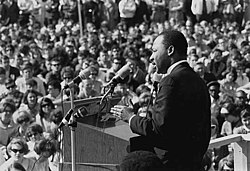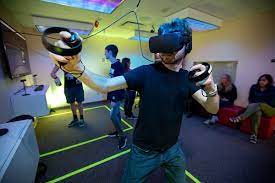My relationship with technology is one of the healthier ones comparted to the sphere of people around me.
Work/School
I use the internet a lot in my schooling. As a historian, online databases give me the power to search vast archives by simply typing in a few key words. Websites like JSTOR enable undergraduates like me to engage in upper level research in our fields and is a genuine life saver when it comes to essay writing. Additionally, without the help of spellcheck and Grammarly I would have failed out of this institution long ago.
Creative Output
As a game designer, it would be literally impossible to work without technology. I use technology to create, something that is very important to me.
Recreation
I spend an abhorrent amount of time playing videogames, it is my primary method of recreation. Whenever I'm not playing games, I'm often watching YouTube. While I don't think my recreational methods are particularly problematic, I do acknowledge the need for more active recreation and actively take steps to diversify my life.
My Family
My Mother- My mother uses technology for primarily three things: to watch workout videos on You Tube, to watch videos on TikTok, and to work. My mother's work habits actually point out an interesting issue that emerges from technology, you simply cannot leave work at work, it follows you home every day. That is something that I think we need to be more conscience of as a society.
My Father- My dad hardly uses technology apart from listening to music on Spotify, but he has recently began using You Tube as recreation. He watches the oddest content about UFOs and the most falsified historical information I have ever seen. It seems that older generations are just as gullible online as younger generations.
My Sister- My sister does the whole social media thing and, as I don't have social media, I have no clue what she posts. I think she uses it primarily to keep in contact with old friends, something I think is admirable.
My Concerns
I can't help but get the feeling now that I'm always being watched and listened to, and that's because it's true. There is no privacy online, whatever you're doing is very profitable for someone to know and sell. There is also an issue of reliance on technology. When is the last time you left the house without your phone? It's been quite some time for me, but I urge everyone to try this. It's oddly freeing.
AI also scares me on the internet. It's gotten to a point where every picture and every article makes me second guess not only its legitimacy, but also if a human was even involved in creating of the content.
The Dead Internet theory is one I find myself thinking about more and more in recent history. The gist of this theory is that the vast majority of online activity now consists of only bots interacting with one another, trying to make someone money or harvest someone's information. It's almost amusing at this point. Nowadays makes me long for an internet I never lived in, one with only people and
GeoCities, the true wild west of the internet.
















